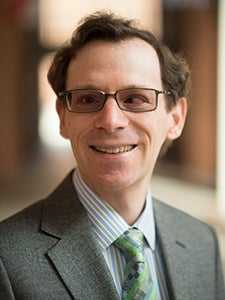USC Experts on Iran Nuclear Deal
The historic accord with Iran announced Tuesday would reportedly limit the nation’s nuclear ability in exchange for lifting international oil and financial sanctions. Experts from USC Dornsife and USC Gould School of Law say the deal is just the beginning.
“The Iran nuclear issue remains a marathon, not a sprint,” said Jacques Hymans, associate professor of international relations at USC Dornsife and an expert in nuclear proliferation and diplomacy. “The past two years of diplomacy have had a positive impact for international security. The interim confidence-building measures that Iran has undertaken since January 2014 place it further away from having a nuclear weapon than it was when the negotiations began. And even at that time, it was likely several years away from having a real nuclear weapon.”

Jacques Hymans, associate professor of international relations at USC Dornsife. Photo by Peter Zhaoyu Zhou.
Explained Hyman: “The chatter about Iran being able to ‘cross the nuclear threshold’ within the time span of a few months is based on defining the ‘nuclear threshold’ as a significant quantity of fissile material, which is not at all equivalent to having actual nuclear weapons.”
Josh Lockman, lecturer on international law and U.S. foreign policy at USC Gould and an expert on international crises in the Middle East, noted that the work is far from over.
“This historic deal reached with Iran represents an important step in thwarting and curtailing its progress toward nuclear enrichment and a weaponized capability. That being said, beyond this deal, broader efforts to contain Iran’s destabilizing influence and threats to regional allies, such as Israel and Saudi Arabia, must be made by the U.S. and its allies in the coming weeks and months following the initial implementation of this deal.”